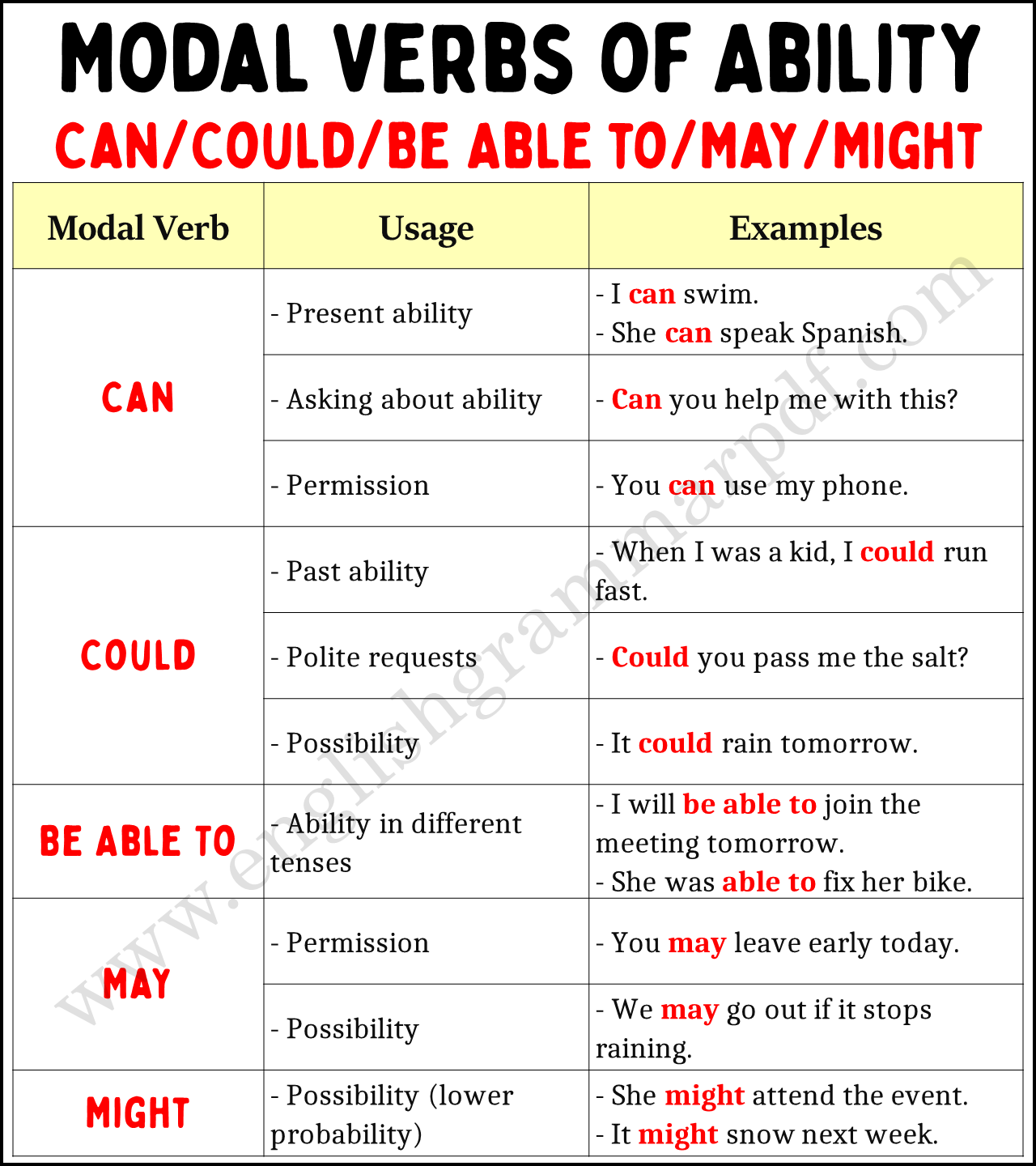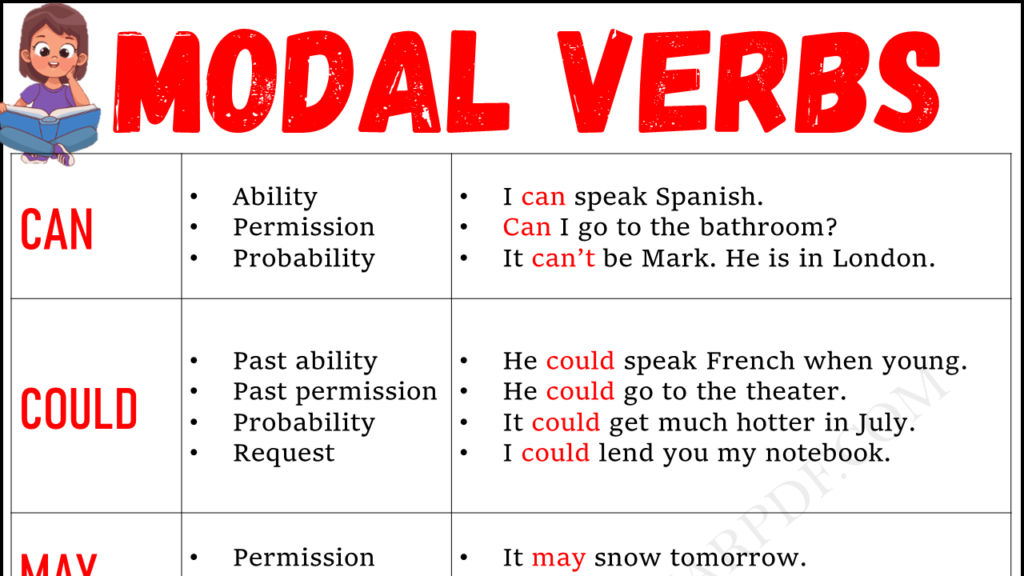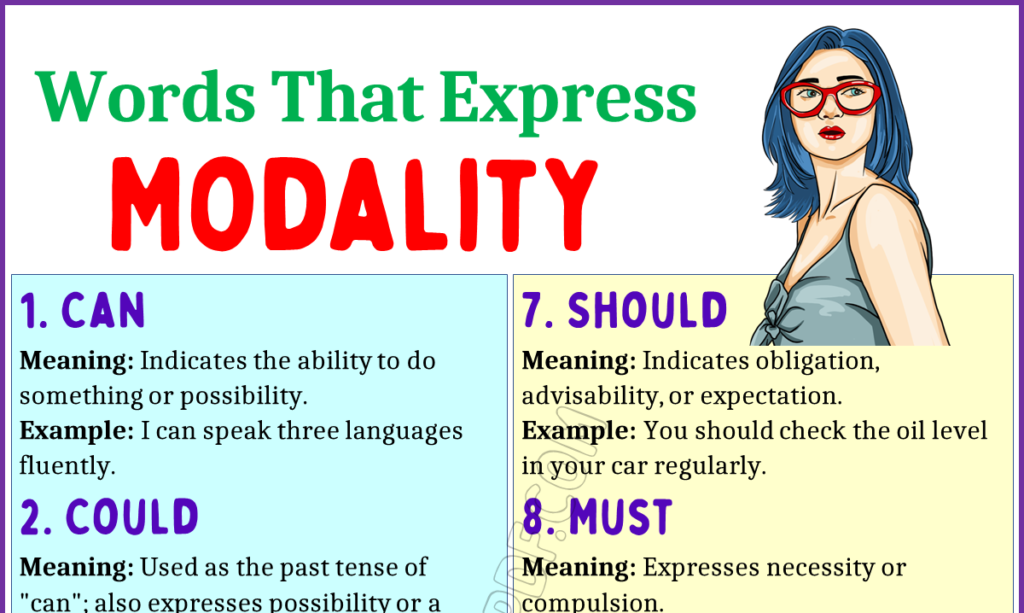In English, we often talk about what we can do, what we might be able to do in the future, or what we could do in the past. To express these ideas, we use special words called modal verbs of ability.
The most common modal verbs of ability are “can,” “could,” “be able to,” “may,” and “might.” Let’s explore each of these verbs, how to use them, and some examples to make it clear.
Modal Verbs of Ability
1. Can
“Can” is a modal verb we use to talk about our ability to do something right now or in general. It’s very straightforward.
Examples:
- I can speak English.
- She can drive a car.
You can use “can” to ask if someone has the ability to do something or to give someone permission to do something.
1. Asking about ability: Can you swim?
2. Giving permission: You can go out with your friends after you finish your homework.
2. Could
“Could” is the past form of “can,” but it also has other uses. We use it to talk about past abilities, to make polite requests, or to suggest possibilities.
1. Talking about past abilities:
- When I was young, I could run very fast.
2. Making polite requests:
- Could you please open the window?
3. Suggesting possibilities:
- It could rain later today.
3. Be Able To
“Be able to” is a bit more flexible than “can” or “could” because it can be used in different tenses. It’s useful when you need to specify the time of the ability more clearly.
Examples:
- I will be able to meet you tomorrow.
- She was able to solve the problem after all.
“Be able to” is especially handy when you can’t use “can” or “could” because of tense limitations.
4. May
“May” is used to express a possibility. It’s a polite and formal way to talk about what might happen or what someone is allowed to do.
Examples:
- You may leave the table when you are finished.
- We may go to the beach if it’s sunny.
5. Might
“Might” is similar to “may,” but it often suggests a lower possibility. We use it when we are not sure about something.
Examples:
- She might come to the party, but she hasn’t decided yet.
- It might snow tomorrow.

Conclusion
Modal verbs of ability help us describe what we are capable of doing or what might be possible. Remembering when and how to use “can,” “could,” “be able to,” “may,” and “might” will make your English communication clearer and more effective. Each verb has its own nuance, so practice using them in different situations to get comfortable with them. Happy learning!


